The song “Teardrop” by Massive Attack begins with these two lines:
“Love, love is a verb
Love is a doing word”
You may recognize this tune as the theme song for the medical drama “House.” Unfortunately, the show only uses the instrumental portion of the song, but the lyrics, in my opinion, are as good as the music.
And it was this song which was repeating through my head last week, as I received the call that my grandmother had passed away. I, along with my husband and parents, sat with her for just a few moments before other family and clergy arrived. Free of pain at long last, she laid there no longer plagued by her struggling mind, her withering body. The noisy oxygen machine had been silenced and removed. Her roommate had been taken out for the morning. The sun invaded the right side of her bed from the nearby window. Out of sheer habit, I kept waiting for her chest to rise. I swallowed my panic when it didn’t. As I sat there and the minutes swiftly rolled past me, I had a feeling that this moment, one filled with utter sadness and solemnity, would be remembered as a sacred one. A body with the spirit newly liberated. That was all she was now. I was beginning to realize that I didn’t recognize her, not as I had known her my whole life. There was no smile on her face, her hands were inert. The glow was absent.
She isn’t here anymore. She left. She’s gone.
Even when you expect it, it still stings when it occurs. The hole her absence creates is still a painful vacuum. We can fill it with whatever we want, but they are poor substitutes. For me, that is an incredibly sad realization. All of a sudden, gifts she gave me before she was ill, time we spent together, stories she told me, all had a deep and abiding significance. She is all that can replace this emptiness…and she is not here to replace it. That was what hurt so much in the first few days. A matriarch, a pillar of support for my entire life, had collapsed. Although dementia robbed her of so many things, it robbed us of her essence. She was not the same as she was. She was a shell, a vacant and lonely cocoon with her passion and personality stripped away. But at least I had something of my grandmother. It wasn’t completely “her”, but I had this tiny body suffering and medicated. For a time, that was enough for my heart and my confidence.
But as she declined, we all knew what was approaching. My father is a diligent son. He and my Mom visited her several times a week during meal time and fed her small portions of pureed food on the tip of a spoon. Gentle hands carried some form of nourishment to obedient, tired lips. She would be heavily medicated but she would still assist him as best she could. One day, she cupped his hand next to her cheek. The last time I saw her awake, she waved a frail hand of goodbye to Mom and me. My parents worked for many months to make the transition to the nursing home a comfortable one for her, and had visited her often.
This is what love is. Love is disguised as so many things in our culture. Every day, I listen to teenagers confuse it for lust. Society tells us to pursue it at all costs, but can’t really define it (Romeo and Juliet was a tragedy, right?). The world strives for the height of ecstasy, for butterflies in the stomach. But butterflies are privy to get tangled in nets. As C.S. Lewis once stated, it is very dangerous to capture an impulse and set it up as “the thing you ought to follow at all costs”. Love, through the world’s lens, is often an embellished, fictionalized emotion.
But love is much tougher than that. Love is hard sometimes. Real love is unconditional. Love is sitting in a nursing home with your ailing mother. Love is cleaning out her home. Love is giving your wife a cup of cold water at the funeral because she needs it and she’s too overcome with grief to get it herself. Love is compromise. Love is sometimes inconvenient. Love endures heartache. Love is taking from yourself and giving to others, without regret. Massive Attack had it right: love is a doing word. Your hands reveal your heart. In the days after her passing, I began to ponder the evidence of her enormous love, and furthermore, the extravagant love our Father has for us. The night is dark, but joy comes in the morning. Every time I become tearful, He whispers that promise to me again.
As the healing begins for us, I am learning new aspects about life. Death has a way of instructing us. Through it, you can understand eternity much better. And maybe, just maybe, you can improve your life by accepting the fact that life is finite – a vapor, a blade of grass. With this knowledge, we can become better people and attempt to fill the shoes of the “giants” who trained us.
1. Invest time where it matters. Let’s face it, there are unhealthy people out there. I don’t mean from an exclusively spiritual stance. Some people want to use you, to take up your time, to encourage heartache, even if they intended well. There have been times in my life where, to impress someone who perhaps didn’t care, I have let others who genuinely loved me down. But not now. I only focus my time and energy into people I feel truly care about me. I don’t chase acceptance anymore, especially after reading Lewis’s “The Inner Ring” (great essay!). I want to be found a “craftsman” and find myself in the company of other “craftsmen”. I do the work that God gives me to do. I walk the path on which He is leading me. I have people surrounding me who genuinely care for me as I care for them. That is love, and that is enough.
2. Embrace your leadership role in life . As I age, I begin to understand that my role in life transitions from passive to active. I was so scared that my matriarch was gone, concerned that I couldn’t be the kind of person she was. But there are people out there who need good leadership, and we need to be leaders. I remember going to Target last Monday night and being so heartbroken. Then I looked around to see others, busy with their lists, pushing buggies full of kids, and scurrying between sections. I stumbled upon the realization: yes, my grandmother is gone but these people aren’t. Those who survive must guide. The world needs us, our children need us. If I honestly want to honor my grandmother’s memory, I will strive to be the person she was for others. My generation needs to accept our leadership roles in society. We should exercise our influence. Whether it is as a parent, a coach, a teacher, a mentor, we must understand that God is preparing us to take the reins one day. We need to muster the strength our predecessors provided for us and lead.
3. Laugh often and love often. Be happy. Don’t live your life in the realm of “what if”. Create radical dreams and passionately pursue them. Be relentless about your life. Last night, my husband and I booked our flights to Europe, where we are going for nine days this summer. While I’m there, I’m going to meet up with kindred spirits, have new adventures, and even chase my ancestors. I will take pictures and collect stories. I will dwell in joy. While the blood runs through my veins, I will live, I will love, and I will thrive. There will be a day (hopefully a long time from now) when I will be buried among my family. Until then, I will unapologetically drink life to the dregs.
It’s a great paradox, but one that continually rings true: dying has taught me to live.
*image courtesy of Shyduck
![concrete_angel_1_by_shyduck[1]](http://crystalhurd.com/wp-content/uploads/2013/02/concrete_angel_1_by_shyduck1-300x300.jpg)
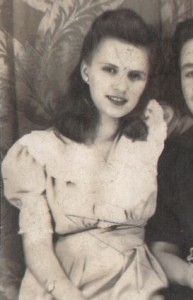
![stock-photo-detailed-view-of-an-old-typewriter-s-keyboard-13262032[1]](http://crystalhurd.com/wp-content/uploads/2012/11/stock-photo-detailed-view-of-an-old-typewriter-s-keyboard-132620321-300x213.jpg)
![183690_10150100020614522_333203_n[1]](http://crystalhurd.com/wp-content/uploads/2012/11/183690_10150100020614522_333203_n1-300x232.jpg)
![RLIZW[1]](http://crystalhurd.com/wp-content/uploads/2013/01/RLIZW1-300x200.jpg)
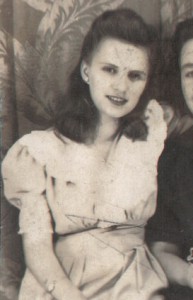
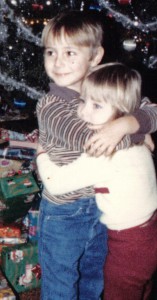
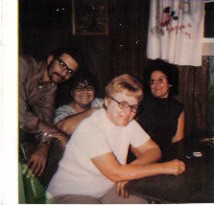
![the_hobbit_movie-HD[1]](http://crystalhurd.com/wp-content/uploads/2012/12/the_hobbit_movie-HD1-300x168.jpg)
![Tales_from_Perilous_Realm[1]](http://crystalhurd.com/wp-content/uploads/2012/12/Tales_from_Perilous_Realm1-195x300.jpg)
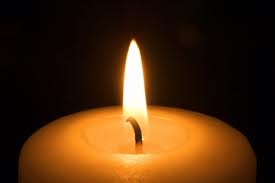
![MV5BMTQzNzczMDUyNV5BMl5BanBnXkFtZTcwNjM2ODEzOA@@._V1._SY317_CR0,0,214,317_[1]](http://crystalhurd.com/wp-content/uploads/2012/12/MV5BMTQzNzczMDUyNV5BMl5BanBnXkFtZTcwNjM2ODEzOA@@._V1._SY317_CR00214317_11-202x300.jpg)
![Lincoln1[1]](http://crystalhurd.com/wp-content/uploads/2012/12/Lincoln11-240x300.jpg)
![passive voice[1]](http://crystalhurd.com/wp-content/uploads/2012/12/passive-voice11-300x300.png)
![cslewis-2[1]](http://crystalhurd.com/wp-content/uploads/2012/11/cslewis-21-249x300.jpg)
![cslewis-pipe[1]](http://crystalhurd.com/wp-content/uploads/2012/11/cslewis-pipe1-236x300.jpg)
![n0RAQ4q[1]](http://crystalhurd.com/wp-content/uploads/2012/11/n0RAQ4q1-300x160.jpg)